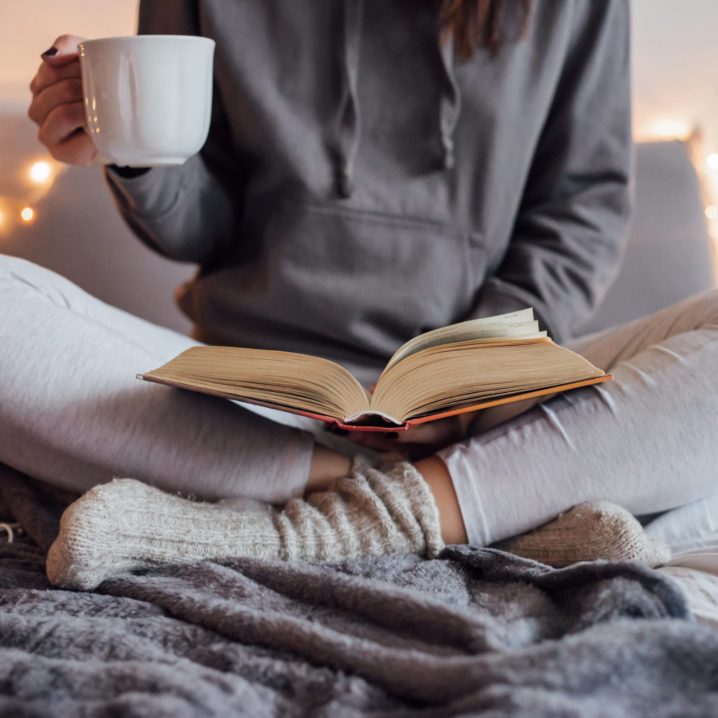
- POPSUGAR Australia
- Living
- I'm Making the Case For Reading the Ending of a Book First – Hear Me Out
I'm Making the Case For Reading the Ending of a Book First – Hear Me Out

I’ve been a voracious book reader for as long as I can remember. More specifically, I’ve been a voracious happily-ever-after book reader, moving from Meg Cabot and Sarah Dessen in my tweens to Sophie Kinsella in college to Helen Hoang and Jasmine Guillory today. But no matter what book I’m reading, there’s one thing I always enthusiastically do: I read the ending first.
Some might argue that knowing the ending takes away from the reading experience, but I find that it actually enhances it for me.
I know, I know, I may as well be committing a crime in some reading circles. Some might argue that knowing the ending takes away from the reading experience, but I find that it actually enhances it for me. Before I commit to a book, I’ll often pore through pages of reviews to glean any bits about the plot that I can. I’ll research the author and other books they’ve written. I’ll see what similar titles are recommended if I like this one. Once I get my hands on the book, I’ll skim it and quickly read the last page. After all, if I’ve done this much research before deciding to dive in, what’s one more step to ensure it’s the right read for me?
Even science agrees with me – a 2011 study from UC San Diego’s psychology department found that readers who knew how a story would end actually enjoyed the story more than those who didn’t.
Still not quite convinced? Here are a few more reasons why I’m firmly on Team Read Endings First.
I Like Knowing What I’m Getting Myself Into
As someone who doesn’t fare well with uncertainty, I like knowing what to expect when I crack open a book: what to pay attention to, whether that’s a supporting character or a flashback scene, who to love, who to hate. Knowing how things will wrap up also allows me to emotionally prepare myself. If there’s a happy ending, I’ll know that I’ll be satisfied. If there’s not – well, at least I’ll know that the intent is probably for me to enjoy the character’s journey rather than holding out for a rewarding resolution and ending up disappointed.
It Takes the Stress Out of the Reading Process
When reading is your main form of relieving stress like it is for me, it should be an enjoyable activity that you can do at your own leisurely pace. When I know how something will pan out, I don’t get too caught up in the will-they-or-won’t-they drama. I can take my time reading without feeling like a prisoner of the plot. You know that feeling of tense anticipation when you’re reading as fast as you can, tripping over words, in order to find out what happens next? Yeah me too, and I find that I skip a lot of details that way – details I wouldn’t gloss over if I already know what will happen. Which leads me to my next point . . .
It Allows Me to Pay Attention to Small Details
Blame it on the detail-oriented Taurus in me, but I’m a sucker for the little things. And in a love story (95 percent of the books I consume), it’s all about the small details that build a connection: a quick glance or a beat of silence. Knowing with whom the protagonist will ultimately end up, or even who the main love interest I should be rooting for is (especially in a book with multiple love interests), allows me to closely scrutinize their interactions and interpret them with the benefit of hindsight as I’m reading, especially toward the beginning. For example, in a book like Kate Stayman-London’s One to Watch, in which the reader knows upfront that there will be multiple love interests, knowing who the protagonist ends up with helps me see the conversations in a different light. I feel like I get more out of a love story this way.
Related: Self-Care Sunday: In Defense of Putting Your Phone Down and Picking Up a Book

